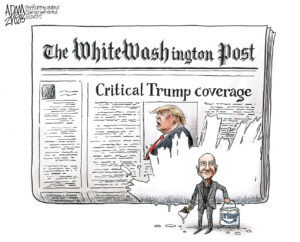The Investment Crisis Midwifing the Ongoing Recession
Investment in what experts call "real inputs" -- structures and machines that enable and boost future output and productivity -- is one way an economy grows over time. No wonder, then, that an economic crisis occurred just decades after the share of national income going to investment began declining during the start of the neoliberal era, around 1980, UMass-Amherst professor Gerald Friedman writes in Dollars & Sense.
Investment in what experts call “real inputs” — structures and machines that enable and boost future output and productivity — is one way an economy grows over time. No wonder, then, that an economic crisis occurred just decades after the share of national income going to investment began declining during the start of the neoliberal era, around 1980, UMass-Amherst professor Gerald Friedman writes in Dollars & Sense.
Investment in real inputs are “crucial for macroeconomic stability and full employment because they provide an ‘injection’ of demand to balance the ‘leakage’ caused” when money is put away in the savings accounts of people and companies. Such investments act as grease that keeps the wheel of capitalism turning. “The worst economic crisis since the 1930s, the Great Recession came after a long period of declining investment, and a break in the linkage between corporate profits and new investment,” Friedman writes.
In an alleged response to the investment crisis, the Federal Reserve lowered interest rates by raising the money supply. The thinking went that if money was more freely available to companies and big corporations, then they would invest it in new industries and projects. But — big surprise — this didn’t happen. And why should it? No law was passed requiring businesses to invest, and businesses don’t invest unless they believe they can show a profit in their short term earnings.
This policy “has had no discernible effect in the last few years, as investment rates are dramatically lower than would have been expected given the level of interest rates,” Friedman writes. In fact, since the start of the Great Recession, “net investment as a share of GDP has plummeted to its lowest level since the 1930s,” in spite of “sharply rising [corporate] profits.”
Meanwhile, unemployment remains high and demand for goods and services remains low. And this demand crisis is what keeps a genuine recovery — one that includes people and communities, rather than just corporations — from occurring.
— Posted by Alexander Reed Kelly.
Dig, Root, GrowThis year, we’re all on shaky ground, and the need for independent journalism has never been greater. A new administration is openly attacking free press — and the stakes couldn’t be higher.
Your support is more than a donation. It helps us dig deeper into hidden truths, root out corruption and misinformation, and grow an informed, resilient community.
Independent journalism like Truthdig doesn't just report the news — it helps cultivate a better future.
Your tax-deductible gift powers fearless reporting and uncompromising analysis. Together, we can protect democracy and expose the stories that must be told.
This spring, stand with our journalists.
Dig. Root. Grow. Cultivate a better future.
Donate today.








You need to be a supporter to comment.
There are currently no responses to this article.
Be the first to respond.